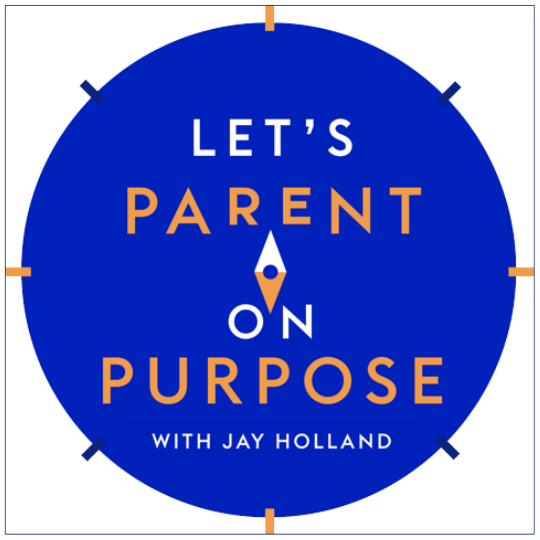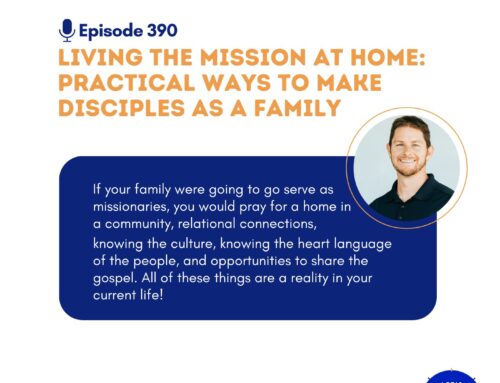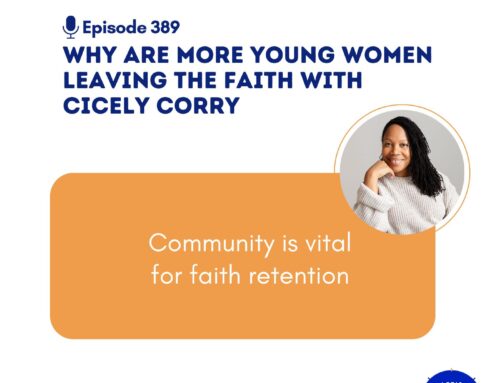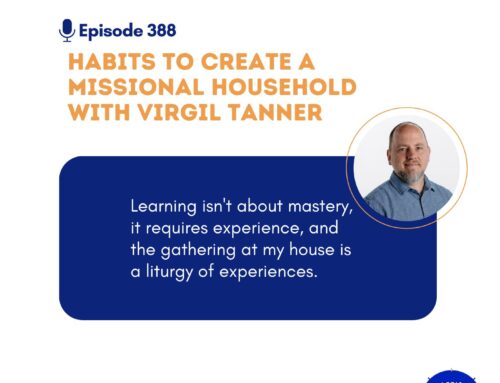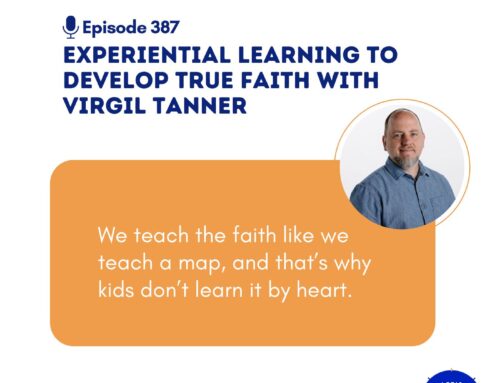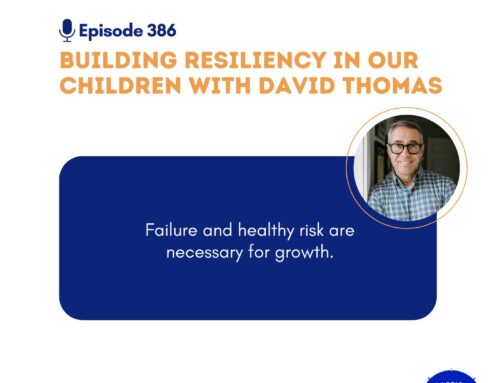Powered by RedCircle
Do you ever feel awkward or overwhelmed with the thought of talking to your teenagers about sex? Author and Christian counselor, Eliza Huie, joins me today as we talk through this immensely practical book that she wrote called Raising Teenagers in a Hyper-Sexualized World.
I found this book so helpful and insightful that I asked the author, Eliza Huie, to come and discuss what she brings to light in the book. Eliza is the Director of Life Counselling Ministry and the Dean of Biblical Counselling at Metro-Baltimore Seminary. Eliza is also a wife, mother of three, and new mother-in-law to one!
Depending on what you’re dealing with right now, this podcast might be a life-saver for you. And if you’re not there yet, you will be. So, I just encourage you to take this podcast and share it with those who are there right now.
Today’s episode is brought to you by my Patreon supporters, who I would like to thank and who make all this possible. Through your help, I was able to interview Eliza from a distance, upgrade equipment, and utilize an audio editor.
Some recent Patreon supporters I’d like to thank are: Steve and Keisha Peterson, Brad and Robin Rogers, Sally Harris, and Nick VanGoor. Thank you so much!
If you would like to help support the show, you can become a patreon, subscribe to the podcast, and sign up for my weekly newsletter.
Show Highlights
J: Thank you for joining me, Eliza. I do want to state that I sought you out. One of my good friends handed me this book and I think I read it in a day. Can you tell me why did you write this book, Raising Teenagers in a Hyper-Sexualized World?
E: I didn’t set out to write a book. This was a thesis project for the Master’s degree that I was in and one of our assignments was to write something that was really practical. I wrote it and my professor told me I should teach it or put it out there for other people. So, I put it out as a free book online and a publisher contacted me and asked if I’d mind taking it down, and they would publish it and try and get it out to more people. This is a publisher who is really looking for books that are very readable and very practical so that people actually get through it. I think one of the biggest struggles, especially as parents, is to find the time to read an entire parenting book. So that was really the motivation behind it.
J: I would love to walk through some of your guideposts for parents. Did you have a particular parent or parenting situation in mind as you wrote this?
E: Yes. There really wasn’t a whole lot written to parents raising teens. It was a lot of parenting in the earlier years and so I wanted to target that audience specifically. I had just kind of started to finish the teen years myself. We have three children and I think my youngest was 17 or 18 when I wrote this. So, I felt like I really wanted to help that age group and parents raising that age group. I started with just tips for parents. In the book they’re written as “Don’ts.” Don’t do this or don’t do that. However, it’s actually a very positive book. It gives you a lot of “Do’s” in the midst of the “Don’ts.” I wanted to start with helping parents from a biblical standpoint to understand their teens. To understand that the teenage years is the stage of a lot of chaos in teens’ bodies and in their minds. I wanted to help parents understand how they’re made, and to be compassionate in light of that, especially in light of their sins, during that time-frame.
J: Absolutely. Having been a youth pastor for 20 years now, I can tell you that this is so helpful as a parent. If I was talking or counselling someone else, I would say that this is obvious, but when it’s your family and your situation it feels like the stakes are so infinitely high.
So, let’s get into these guideposts.
- Don’t overreact.
Can you speak to this and why you started with it?
E: Mostly because that’s our natural tendency, especially in the teen years. In the younger years, it seems like we have a lot more understanding to the fact that they are toddlers or they’re little children. As they get to be about our size, we tend to have a lot more expectation of how they’re going to respond to things. So, when they respond in ways that are still foolish, it’s easy to overreact, especially when it comes to sexual sin or even sexual exploration. If we find our children exploring certain things, having curiosity about certain things, or we catch them in certain things related to sexual sin, the easiest thing to do is overact and feel like this is the worst thing. And I think that’s really what I wanted parents to step away from. This really isn’t the worst thing that could happen, depending on what your child is struggling with or dealing with. It’s really a part of the growing up process-to become sexually curious. That’s really why I wanted to start with that because it’s easy to overreact as parents.
J: It really is. I think one of the things that helps with perspective is just to realize that we grew up in a pretty hyper-sexualized world, as well. It’s not like this all just started in the last ten years. I think it’s more in their faces now. When I was young, you had to actively seek pornography out. Now, it’s chasing them. I think it’s hard as a parent to remember that because we live in terror that their life is going to be over if they go down this path. And the truth is that we’re going to flub this up the whole way through life, and the Lord is going to use it and redeem it. When parents overreact to sexual sin, they can create an environment where sexual sin seems like the worst thing possible, and overreaction inhibits continual communication. What have you seen with that?
E: That is one of the reasons I put this at the beginning. We want to create an environment where we keep talking about sex and sexuality and the questions that they have. But overreacting really stops the conversation. It stops them from coming to us because we freak out and go to the extreme and lay down really hard consequences. There should be consequences. However, we want consequences that don’t stop a behavior, but actually help us to continue to engage our children. Our reaction really dictates that. I do really want to encourage parents that if they have overreacted, kids are pretty forgiving of our overreactions.
J: I think that often times, sexual sin is not in a bubble – there are other sins. It can feel like an anvil put on your chest, as a parent. So, how do you not overreact to this? It seems to hit every area of life, but a lot of times those other sins are reactionary sins from the initial one.
- Don’t preach or lecture.
E: I think this is really hard for parents because we feel like we have to get it all in. This is the conversation that we need to have, and we have to hit every point. But one of the things that you want to watch for is their eyes glazing over. Once you see that happening, you’ve lost them. So, keep your conversation small and trust that you’re going to get a second swing at this. And the truth is: you do. You get a second swing at these things. Knowing that keeping it shorter allows them to process, allows you to give them some space, and then you can revisit it in future times.
J: Especially if they’ve done something wrong and they’re willing to come forward on it. That can be a hard balance because what they did might be absolutely revolting to you, but there’s a bigger principle at play here, which is that bond of trust. It’s like what does God do when I come and confess my sin? Does he vomit all over me at that point? No. He forgives. Will there be consequences? Yes.
- Don’t disconnect.
J: Why is that so important?
E: It is so important because by the time you have teenagers, you’ve been parenting a long time and it’s really easy at that point to click on “autopilot.” You feel like you’ve said what you can say, you’ve done what you can do, and it’s easy to check out. But the truth is that in the teen years (it won’t seem like it from them), our children actually need us more. Your kids actually want to learn about sex from their parents. They want to talk to their parents about it. So, it’s all the more important to really stay engaged in this season of parenting.
J: Often times most of our talks with our teens happen just as we’re about to head to bed after a long day. I’m exhausted at the end of the day and that’s when my teenage daughter comes alive. She comes home ready to spill her day and I’m a zombie. But how important is it to keep engaged during that time when they’re ready to be engaged?
E: I think what your saying is what I have felt and what others have felt: it’s not convenient most of the time. Teens like to stay up late and that is when they tend to get a little more talkative and more engaged in conversation. Finding the time is not going to fit our agenda as much as it did when our kids were younger, and that’s when we’re going to have to fight. Not just our weariness in parenting, but our weariness in the day. Capitalizing on those moments and being able to hear where they’re at and listen to them. Let them know that you’re glad you were able to talk, and plan a time to talk more.
J: Plan a date to continue the conversation. When you get on that date, you probably won’t talk about that conversation at all, but you’re still connecting with the heart.
- Don’t think, “Not My Kid.”
J: You don’t want to have this mentality, do you?
E: No. I think that this is especially true with Christians. Believers have to really fight against this because as we’ve raised them, we read Bible stories, we took them to church and church camps, and we did all that we really could do to raise them up in the Lord. There can almost be a sense of, “this won’t happen to my child.” But the truth is that they live in a world where the average age of exposure to pornography is 8 years old. And it’s in the home. Ninety percent of kids view pornography at home. It’s easy to kind of feel like we’ve done all the right things, and that therefore, it will never be my child. But that’s not only setting yourself up for a lot of pain and failure, but your children, as well.
J: How much of the “not my kid” mentality is really because I’m terrified for my child or because I think it’s a reflection on me? And it’s really an attack on my pride – the fact that my child would be involved in something. How much do you think that plays in?
E: I think you’re really touching on the core of that. Ultimately, our children do reflect a lot of us. And that’s where we have to be anchored in our own identity in Christ and be able to trust that we are in process and our children are in process and the Lord is working on us. There’s a humility factor there. I think we have to embrace, especially as our kids become teens and they make a lot of decisions that are completely their own, that this is where we get to trust that our confidence is in Christ and not in our parenting. It shows how much we are using our children as a means of finding a sense of accomplishment
J: I had really good parents. They loved me and I never doubted that they loved me. That didn’t stop me from doing whatever I wanted sometimes. I know my rebellion was against the Lord, but I didn’t consider it a rebellion against the Lord. I loved the Lord. I didn’t consider it a rebellion against my parents. I just wanted to do what I wanted to do. We, as adults, compartmentalize. As a teen – they’re masters of compartmentalization, and so we have to watch and be careful sometimes that we don’t take their sin as a direct affront against us. Sometimes it’s just the lust of the eyes, the lust of the flesh, the pride of life.
- Don’t avoid discussing the changes that they are experiencing.
J: Why is it important to not avoid? Are there age ranges that you would recommend exposing different talks?
E: The reason I wrote this little mini chapter is because a lot of the times we don’t know all that’s going on in our kids’ bodies physiologically. When I wrote this book, I had to do a whole lot more study than what is put into the actual book. I found myself having a much deeper compassion towards my teenage boys because of knowing what was going on in their bodies. Part of it is just helping them be aware and letting them know that some of the stuff they’re dealing with is just physical. Not taking it personal becomes very important because you’re going to see mood swings like roller coasters in this age. Some of that has to do with the chemical changes happening in their body and helping them become more aware of that is a grace that you can give them in this season.
J: Dan Scott wrote a book, Caught In Between: Engage Your Preteens Before They Check Out, on helping formulate stuff in your church for preteens and I learned so much about what was happening in the wiring of a brain. If you look at the brain of an early teenager, it looks like the brain of a toddler, where they’re making connections all across the place and that’s a lot. Unfortunately, they’re put in a holding pen with several hundred or thousand other children experiencing the same thing. No wonder middle school is so miserable for so many people. We can’t avoid these conversations, can we?
E: Exactly. And it’s helpful for us to know what’s going on. It’s helpful for us and it’s helpful for them.
- Don’t underestimate the role you play in your teen’s life.
J: I think many parents don’t feel they have that big of a role. They think that its friends, media, and all of that. What would you say to the mom and dad that feel like their influential time is largely passed?
E: Yes. They will come across that way. But, the truth is that they do really want to be able to talk about certain things with their parents. I think that one of the things that is so important for parents is to recognize that their role has changed at this point. I would say that the majority of the conflict that happens between parents and teens is from parents actually not recognizing that their role has changed. You went from telling your kids to do everything, and that has to shift. What we want to do is move from authority to influence. If we can influence them, we’re going to have greater impact for them in their lives. Paul Tripp writes in Age of Opportunity a lot about that – dealing with our own hearts is a lot of what’s happening there.
J: I think it’s in the book Parenting Teens with Love and Logic by Foster Cline and Jim Fay that one of the challenges we have is we give tremendous freedom in decision-making to our children in the elementary years. Then, we hit the teenage years and we remember being teenagers and we realize that the stakes of decision-making have now radically increased. So, what happens is we do this massive course correction and we suddenly restrict what seems like a natural growth of decision-making to the teen and we can come off as unreasonable and hyper-restrictive. Now, you have more of an influencer role than an authoritarian one and that can be hard. You have a massive role; it just keeps changing.
- Don’t send teens the wrong messages about sex.
J: What’s the right message about sex?
E: What I see in mainstream Christianity and in Christian circles is a real strong emphasis on sex being negative, on sex being bad, and on sex being evil. That’s just not biblical. When we look at Genesis, we see God as the designer, the creator of sex, and that He gave it as a blessing. It says that He spoke to Adam and Eve, and He blessed them, and He said be fruitful and multiply. The only way you can be fruitful and multiply is by having sex, so in this blessing was sex. I think that a lot of the reason why we make it big, bad, and ugly is because we’re afraid of them making decisions that are going to be lifelong or that affect them for the rest of their lives. But in that fear, we tend to create a mindset that sex is bad. Then when they get married, they somehow have to change gears and see sex as good. As a counselor I’ve seen this be very challenging for people. So, we want to give them a biblical view of sex – that God created it for man and woman in marriage and that it’s good and beautiful.
J: I remember teaching a series on sex and talking about culture’s lies. One of the lies is that sex is primarily physical, and the truth is sex is primarily relational. So, making the point to these kids that if you want to have an amazing sexual life, work on your relational skills right now. And what’s great is that married sex (where there’s intimacy and there’s no fear of rejection) is the goal. It’s not that sex is bad, but that sex is a gift from God; a celebration of this relationship that’s meant to last a lifetime.
You have done such a good job with this. I really appreciate it. Additionally, you’ve written another book that I’m excited to talk about. Would you just mention that one really quick?
E: Sure. These books are actually part of a series. There’s five or six of them in the series. I’ve written two: Raising Teenagers in a Hyper-Sexualized World and Raising Kids in a Screen-Saturated World. That one definitely speaks to what a lot of parents struggle with, which is navigating this digital world that our kids are native to.
J: You sent me that book and I just finished it and its fantastic. If someone wants to get a hold of these books, do you have a best recommendation for how they should do that?
E: Sure. The best way is directly through the publisher. They’re also available on Westminster Bookstore or on Amazon.
J: One final question: how can we pray for you during this season of your life?
E: That God would use me in the opportunities that are ahead and that I would be able to be a conduit and a blessing to parents.
Tweet This
They’re masters of compartmentalization, and so we have to watch and be careful sometimes that we don’t take their sin as a direct affront against us. Share on X But the truth is that in the teen years (it won’t seem like it from them), our children actually need us more. Share on X You have a massive role; it just keeps changing. Share on XResources Mentioned
Age of Opportunity by Paul Tripp
Raising Teens in a Hyper-Sexualized World by Eliza Huie
Raising Teens in a Screen-Saturated World by Eliza Huie
Caught In Between: Engage Your Preteens Before They Check Out by Dan Scott
Parenting Teens with Love and Logic by Foster Cline and Jim Fay
